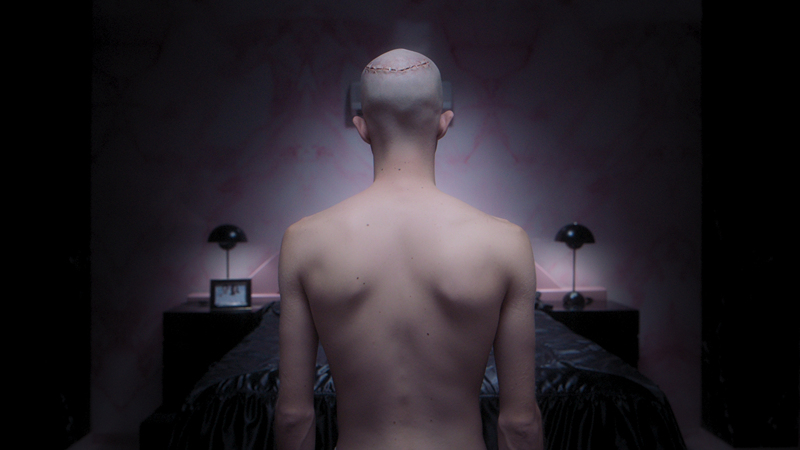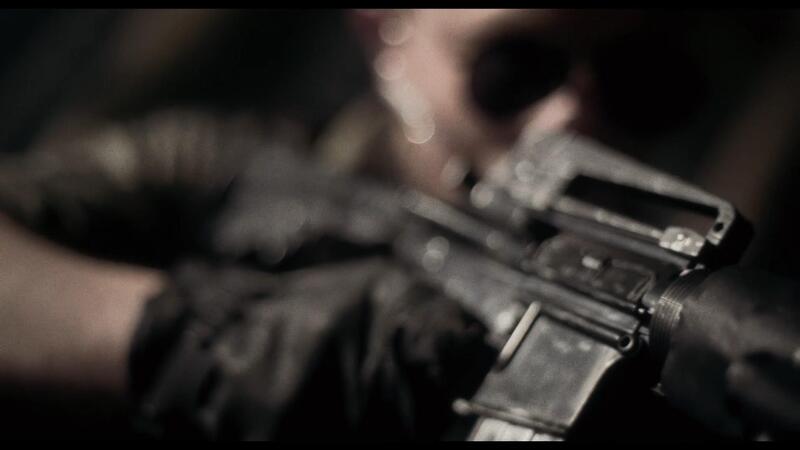
Control and Dependency Explored
MOVIE REVIEW
La Pieta (Piety)
–
Genre: Drama, Fantasy, Horror
Year Released: 2022, 2025
Runtime: 1h 26m
Director(s): Eduardo Casanova
Writer(s): Eduardo Casanova
Cast: Ángela Molina, Manel Llunell, Ana Polvorosa, Antonio Durán 'Morris'
Language: Spanish with English subtitles
Where To Watch: premieres on VOD, digital & Film Movement Plus on January 17, 2025
RAVING REVIEW: LA PIETA lures you into its world—a place where beauty and tension exist in a constant tug-of-war. Eduardo Casanova’s unmistakable style shines through as he merges visual grandeur with a narrative delving deep into the complexities of control and dependency. This isn’t just a tale of relationships or allegories; it’s a statement that blurs the lines between personal pain and broader reflections.
At the heart of this story lies the volatile dynamic between Lili, a suffocating mother, and Mateo, her vulnerable son. Played to perfection by Ángela Molina, Lili is a paradox, outwardly nurturing yet inwardly manipulative. Her suffocating love feels less like affection and more like a stranglehold, with her son serving as the focal point of her twisted world. Manuel Llunell’s portrayal of Mateo adds complexity, balancing resignation with a yearning for freedom. Their interactions are heightened by the film’s meticulously designed setting—a pastel-drenched home that serves as both a sanctuary and a cage.
Casanova’s decision to interlace this intimate drama with a parallel narrative about North Korea’s authoritarian regime adds a layer of audacity to the film. By contrasting the personal oppression of Lili’s home with the political oppression of a dictatorship, the film explores domination in all its forms. While some might find the connection between these two storylines overly direct, it effectively underscores the themes of control and submission. The stark contrast between the domestic scenes and the muted tones of the North Korean sequences enhances the film’s storytelling, reinforcing its core ideas without overt exposition.
Visually, LA PIETA is nothing short of a spectacle. The deliberate use of pastel pinks and stark blacks gives the film a duality that mirrors its conflicts. These colors reflect the suffocating tension within the household. From symbolic dream sequences to unsightly yet mesmerizing scenes, Casanova's imagery elevates the film beyond conventional narrative cinema. Every frame feels like a carefully constructed piece of art designed to evoke emotion and provoke thought.
Llunell’s portrayal of Mateo provides a poignant counterbalance to Molina’s Lili. His performance radiates quiet desperation and vulnerability. Supporting roles, particularly those played by María León and Macarena Gómez, add scope to the story, offering brief but impactful glimpses of the world beyond the central pair’s isolated existence.
The psychological tension at the core of LA PIETA is its greatest strength and most challenging element. Lili’s obsessive control over Mateo parallels psychological conditions like Munchausen by proxy syndrome, where care and manipulation become indistinguishable. This relationship becomes a microcosm for authoritarian regimes, showcasing how control is often maintained through dependency and fear. Casanova’s willingness to tackle these themes head-on without softening their edges is commendable, even if it risks alienating some viewers.
The production design deserves special recognition for shaping the film’s atmosphere. The contrast between the meticulously curated home setting and the bleak, utilitarian design of the North Korean scenes underscores the dualities. Colors, space, and furniture manipulate emotions, creating a beautiful and oppressive environment. Casanova’s ability to communicate so much through aesthetics alone is a testament to his skill as a visual storyteller.
Despite its ambition, LA PIETA suffers from a heavy reliance on symbolism. The distorted visions may feel overwhelming to some, and the film’s pacing occasionally falters under the weight of its complexity. These imperfections still manage to add to the film’s unique identity. It’s a work that demands engagement.
Ultimately, LA PIETA is a bold and uncompromising piece of cinema. It challenges viewers to confront uncomfortable truths about power, control, and the human condition. While it may not appeal to everyone, its originality and depth make it a unique piece in contemporary filmmaking. Casanova’s vision and daring storytelling ensure that this film will linger in the minds of its audience.
Please visit https://linktr.ee/overlyhonestr for more reviews.
You can follow me on Letterboxd, Instagram, Twitter, and YouTube. My social media accounts can also be found on most platforms by searching Overly Honest Reviews.
I’m always happy to hear from my readers; please say hi or send me any questions about movies.
[photo courtesy of FILM MOVEMENT]
DISCLAIMER:
At Overly Honest Movie Reviews, we value honesty and transparency. Occasionally, we receive free items for review, including DVDs, Blu-rays, CDs, Vinyl, Books, etc. We assure you that these arrangements do not influence our reviews, as we are committed to providing unbiased and sincere evaluations. We aim to help you make informed entertainment choices, regardless of our relationship with distributors or producers.
Amazon Affiliate Links:
Additionally, this site contains Amazon affiliate links. If you purchase through these links, we may receive a commission. This affiliate arrangement does not affect our commitment to honest reviews and helps support our site. We appreciate your trust and support in navigating these links.



Average Rating